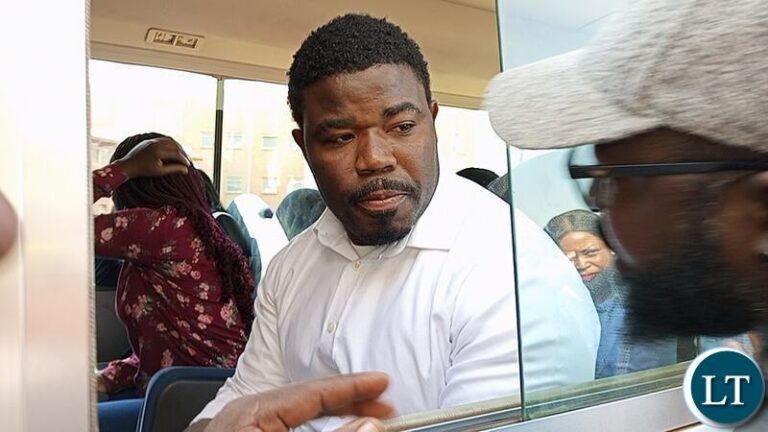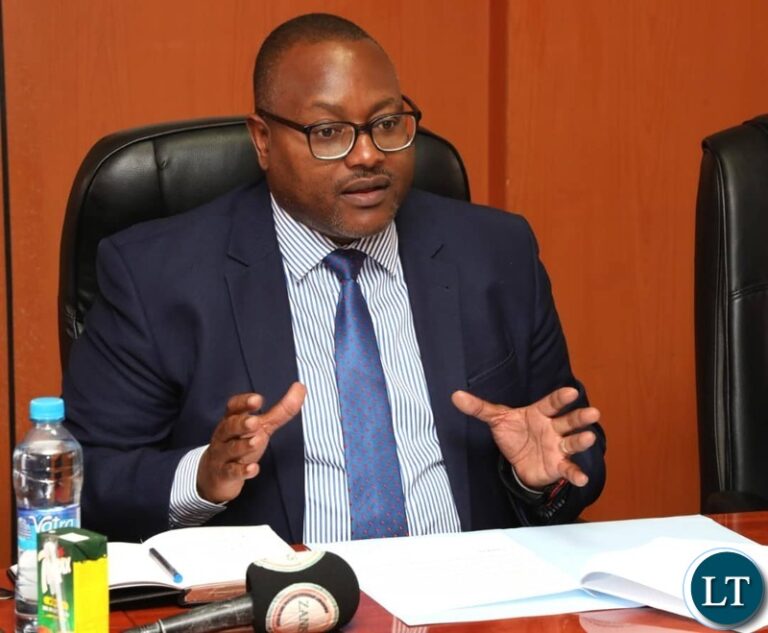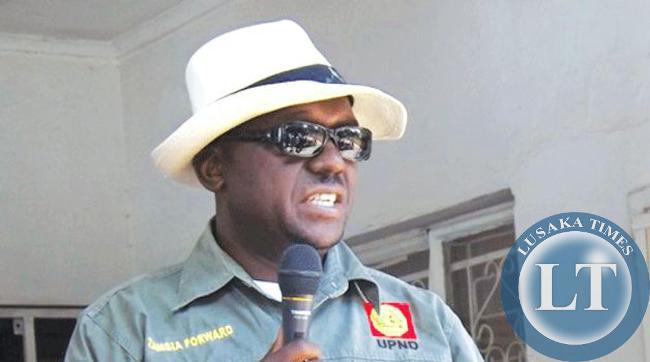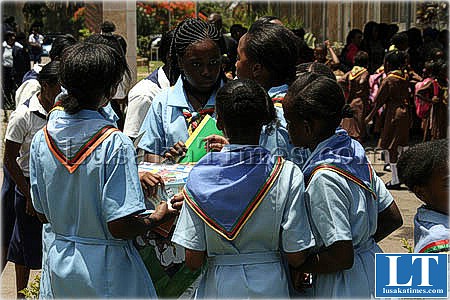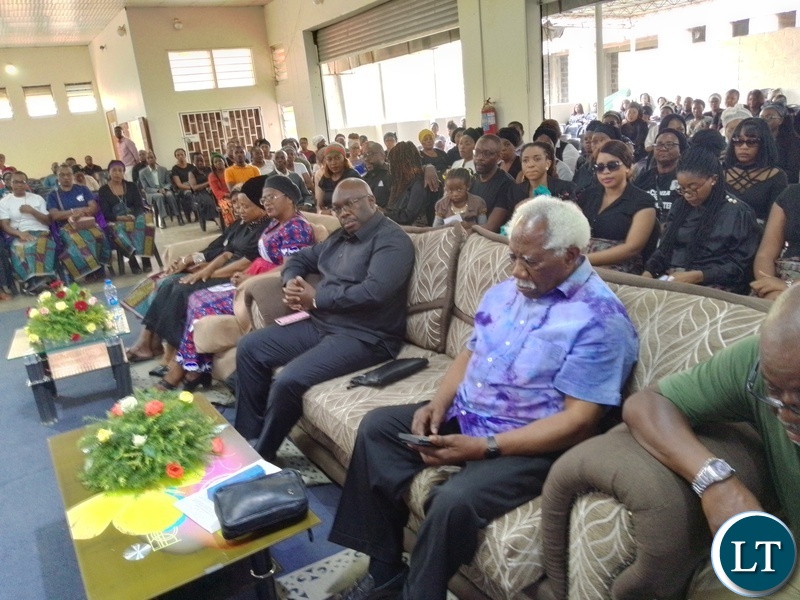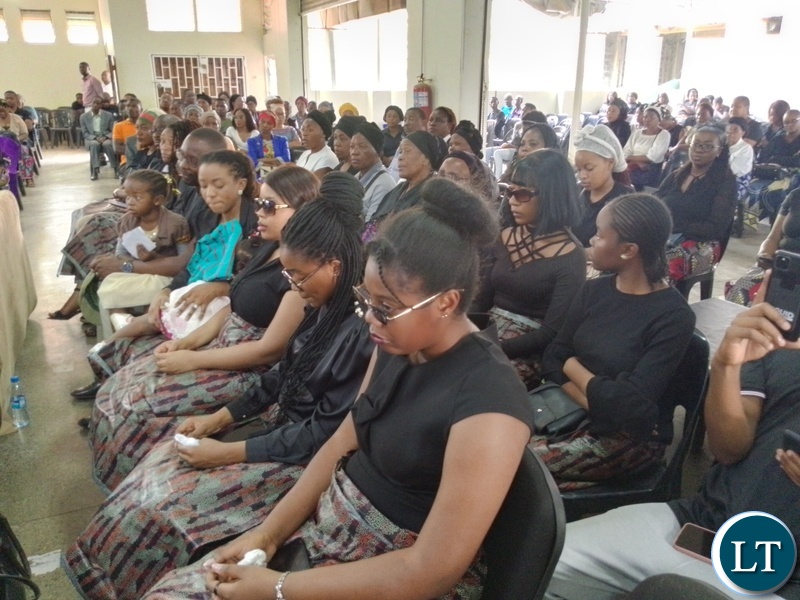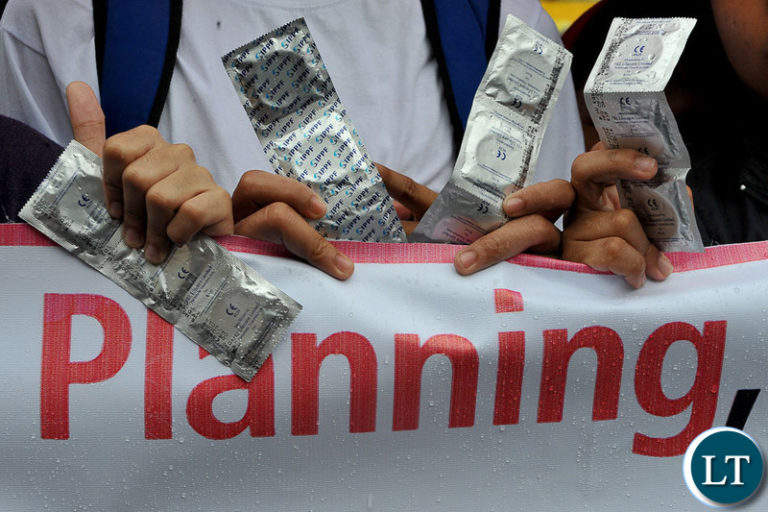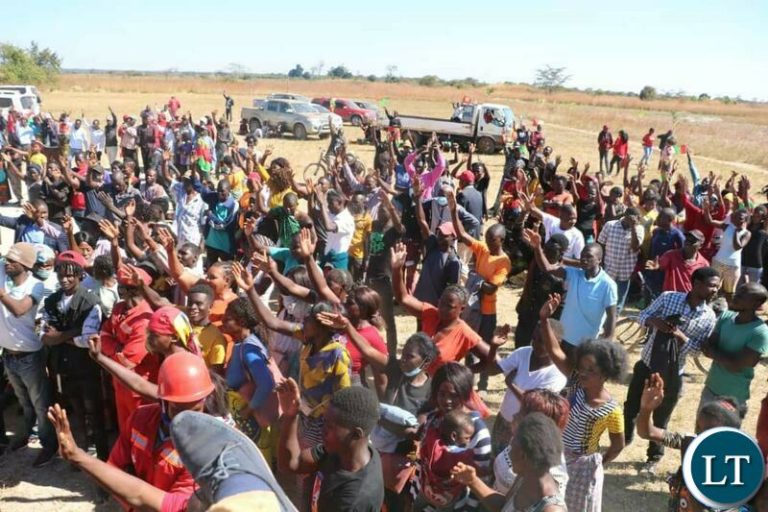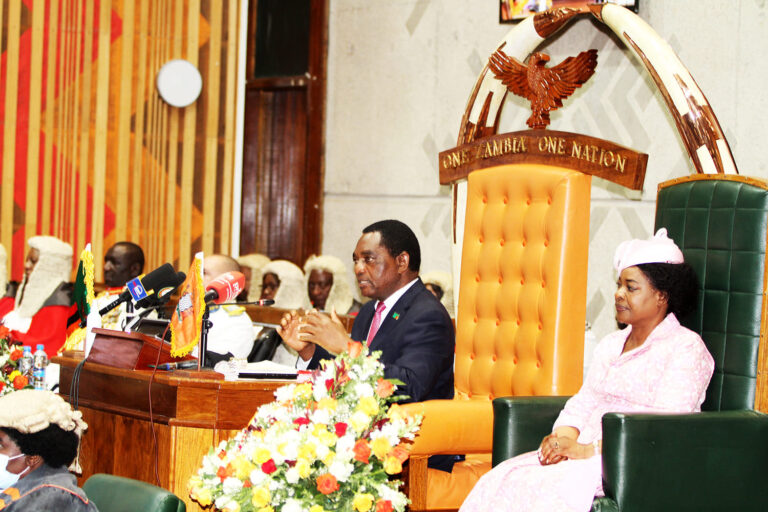Could Zambia be the next frontier for Americans, Israelis, and Africans to explore innovations in financial technology?
Last month, during an official State Dinner hosted by Israeli President Isaac Herzog, Zambian President H.E. Hakainde Hichilema and his senior advisor Chipo Mwanawasa suggested to Herzog that their southern African country host Israel, the U.S. and African nations for a fintech summit in 2024.
At the dinner, which took place during an AJC Project Interchange delegation of African business leaders, Mwanawasa told Herzog how important American Jewish Committee (AJC) is, and why the agency is a key connector for Israel, Zambia, and the U.S.
“It is clear that ties will continue to deepen between the two countries,” said AJC Africa Institute Director Wayne Sussman, who also met with Hichilema during the trip. “Sectors such as agritech, fintech, and independent power generation are some of the areas where you will see enhanced cooperation in the next 24 months. President Hichilema is a results-oriented leader. He sees tremendous potential in this mutually beneficial relationship.”
The deepening relationship with Zambia comes amid significant growth in ties with African nations. Last week, Sierra Leone announced that it would open an embassy in Jerusalem, making the West African nation the sixth country to place its top diplomatic post in the Israeli capital.
Here’s what you need to know about Israel’s history with Zambia and other African nations.
How is Israel improving relations with Zambia?
In addition to dining with Herzog, Hichilema met with Israel’s Prime Minister Benjamin Netanyahu in Jerusalem. Plus, a high-level Zambian delegation held an extended meeting with senior members from the Israeli government.
In addition, Zambia’s Foreign Minister Stanley Kakubo discussed with Israel’s Foreign Minister Eli Cohen cooperation in the fields of medicine, culture, communication, and agriculture. The two also addressed Israel’s position as an observer to the African Union, which has been up for debate after a diplomat was expelled from a meeting in February.
“We are discussing many ways in which we can further improve our relations for the benefit of our two peoples, and also for the benefit of Israel’s return to Africa,” Netanyahu said. “Israel is returning to Africa and Africa is returning to Israel and this will be good for everyone.”
What is the history of relations between Israel and Zambia?
At the time Israel declared independence in 1948, many African nations were also declaring independence from their colonial governments.
As Israel’s foreign minister in the 1950s, Golda Meir, who would later become prime minister, saw an opportunity to grow together in a post-colonial world and made relations with Africa a priority for the nascent Jewish state.
Though one of the world’s smallest Jewish communities (1,200 at its peak), Zambia’s Jewish community played an outsized role in the country’s development. Mainly descendants of immigrants from Eastern Europe in the late 19th century and later refugees who fled the Nazis, Jews in Zambia were active in copper mining and raising cattle. Later, they were politically active in helping Zambia gain independence from the United Kingdom.
Israel and Zambia established diplomatic relations shortly after Zambia declared independence in 1964.
Through the mid-1960s, thousands of Israeli experts in fields such as military, intelligence and security, regional planning, and agriculture visited African nations. Many African leaders and technocrats also visited Israel to see the country’s development efforts first-hand.
Why did Zambia break off relations with Israel?
Following the 1967 Six-Day War and later the 1973 Yom Kippur War, in which Egypt lost the Sinai Peninsula and the Gaza Strip, Jordan lost the West Bank and East Jerusalem, and Syria lost the strategic Golan Heights, Soviet-backed Arab states sought retribution.
Facing pressure to boycott the Jewish state, Zambia and nearly two dozen African nations severed ties with Israel.. Zambia and Israel re-established ties in 1991.
Today, Zambia maintains an embassy in Tel Aviv. Meanwhile, Israel’s Ambassador to Zambia, Ofra Farhi, serves as a roving ambassador to Zambia, Namibia, Botswana, and Zimbabwe.
Over the decades, while diplomatic relations between the two countries have been maintained, the extent of cooperation between them has varied. Different Zambian governments have placed varying levels of emphasis on their relationship with Israel.
One area of cooperation between the two countries has been in the field of agriculture. Israel, known for its expertise in arid and desert farming techniques, has collaborated with Zambia in agricultural projects aimed at improving food security and agricultural practices in the country.
Additionally, Israel has provided technical assistance to Zambia in various sectors, including water management, technology, and healthcare. This assistance aimed to share Israel’s expertise and technologies to address challenges faced by Zambia.
It wasn’t until the Oslo Accords of 1993 that Israel saw a renewal of ties with more African nations. But a real breakthrough occurred following the 2020 Abraham Accords, which saw Israel establish ties with Bahrain and the United Arab Emirates, then later a renewal in ties with Morocco and relations with Sudan.
How is Israel advancing relations with Africa today?
Israel’s efforts in Africa encompass a range of areas aimed at strengthening ties and promoting development. Diplomatically, Israel has re-established relations with nations like Chad and Sudan and is working to normalize ties with Niger, Mauritania, and Somalia.
The country shares its agricultural, technological, and medical expertise through initiatives such as the Israel-Africa Agricultural Innovation Center, fostering food security and healthcare improvements. In security and counterterrorism, Israel collaborates on intelligence-sharing and training to address security challenges. Humanitarian aid, disaster relief, economic partnerships, education programs, and cultural exchanges further demonstrate Israel’s commitment to supporting African nations in various aspects of growth and progress.
Successive Israeli governments have made relations with Africa a top priority. In recent years, Israel has been rapidly expanding its relations with Sub-Saharan Africa, including with major and emerging economies such as Rwanda, Nigeria, and Ethiopia.
In July 2016, Netanyahu became the first Israeli prime minister to visit Africa in decades when he visited Uganda, where his brother Yoni was killed during the infamous raid in Entebbe to rescue hostages from a hijacked airliner. After a stop in Uganda, he went to Kenya and held a summit with 10 African leaders, then visited Rwanda and Ethiopia.
Israel also obtained observer status in the Africa Union in 2021 after decades of diplomatic efforts – a position now in question after tensions within the international body flared earlier this year.
In recent months, Israel’s Foreign Minister Eli Cohen has met with officials from Ivory Coast, Ghana, and Kenya. With the Ivory Coast, Cohen inked a framework agreement in the fields of agriculture, water, and technology.
[AJC Global Voice]


